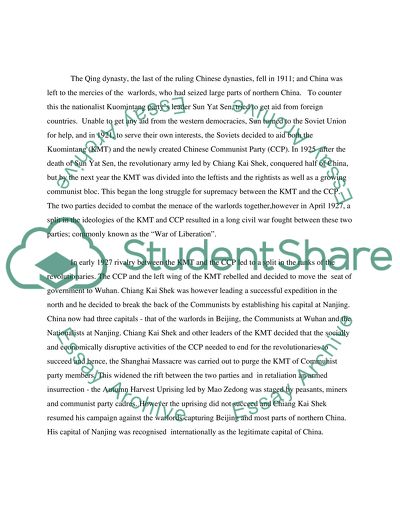Cite this document
(“History of World Civilizations Since 1700: War between the Chinese Essay”, n.d.)
Retrieved from https://studentshare.org/other/1420621-history-of-world-civilizations-since
Retrieved from https://studentshare.org/other/1420621-history-of-world-civilizations-since
(History of World Civilizations Since 1700: War Between the Chinese Essay)
https://studentshare.org/other/1420621-history-of-world-civilizations-since.
https://studentshare.org/other/1420621-history-of-world-civilizations-since.
“History of World Civilizations Since 1700: War Between the Chinese Essay”, n.d. https://studentshare.org/other/1420621-history-of-world-civilizations-since.


